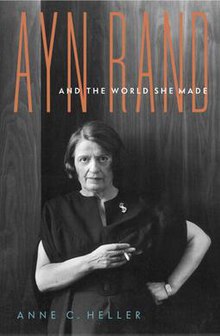
Alice O'Connor, better known by her pen name Ayn Rand, was a Russian-born American author and philosopher. She is known for her fiction and for developing a philosophical system she named Objectivism. Born and educated in Russia, she moved to the United States in 1926. After two early novels that were initially unsuccessful and two Broadway plays, Rand achieved fame with her 1943 novel The Fountainhead. In 1957, she published her best-selling work, the novel Atlas Shrugged. Afterward, until her death in 1982, she turned to non-fiction to promote her philosophy, publishing her own periodicals and releasing several collections of essays.
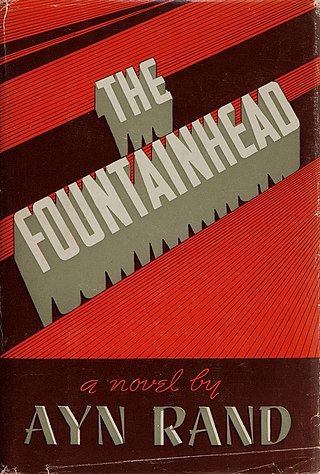
The Fountainhead is a 1943 novel by Russian-American author Ayn Rand, her first major literary success. The novel's protagonist, Howard Roark, is an intransigent young architect who battles against conventional standards and refuses to compromise with an architectural establishment unwilling to accept innovation. Roark embodies what Rand believed to be the ideal man, and his struggle reflects Rand's belief that individualism is superior to collectivism.

Nathaniel Branden was a Canadian–American psychotherapist and writer known for his work in the psychology of self-esteem. A former associate and romantic partner of Ayn Rand, Branden also played a prominent role in the 1960s in promoting Rand's philosophy, Objectivism. Rand and Branden split acrimoniously in 1968, after which Branden focused on developing his own psychological theories and modes of therapy.

Leonard Sylvan Peikoff is a Canadian American philosopher. He is an Objectivist and was a close associate of Ayn Rand, who designated him heir to her estate. He is a former professor of philosophy and host of a nationally syndicated radio talk show. He co-founded the Ayn Rand Institute (ARI) in 1985 and is the author of several books on philosophy.

We the Living is the debut novel of the Russian American novelist Ayn Rand. It is a story of life in post-revolutionary Russia and was Rand's first statement against communism. Rand observes in the foreword that We the Living was the closest she would ever come to writing an autobiography. Rand finished writing the novel in 1934, but it was rejected by several publishers before being released by Macmillan Publishing in 1936. It has since sold more than three million copies.
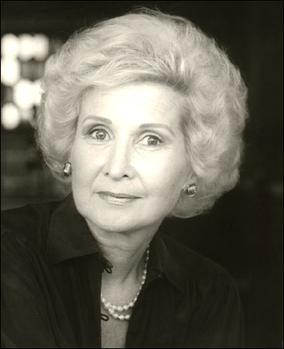
Barbara Joan Branden was a Canadian-American writer, editor, and lecturer, known for her relationship and subsequent break with novelist-philosopher Ayn Rand.

Night of January 16th is a theatrical play by Russian-American author Ayn Rand, inspired by the death of the "Match King", Ivar Kreuger. Set in a courtroom during a murder trial, an unusual feature of the play is that members of the audience are chosen to play the jury. The court hears the case of Karen Andre, a former secretary and lover of businessman Bjorn Faulkner, of whose murder she is accused. The play does not directly portray the events leading to Faulkner's death; instead the jury must rely on character testimony to decide whether Andre is guilty. The play's ending depends on the verdict. Rand's intention was to dramatize a conflict between individualism and conformity, with the jury's verdict revealing which viewpoint they preferred.
The Nathaniel Branden Institute (NBI), originally Nathaniel Branden Lectures, was an organization founded by Nathaniel Branden in 1958 to promote Ayn Rand's philosophy of Objectivism. The institute was responsible for many Objectivist lectures and presentations across the United States. Many of those associated with NBI worked on the Objectivist magazines, The Objectivist Newsletter and The Objectivist.

The Romantic Manifesto: A Philosophy of Literature is a collection of essays regarding the nature of art by the philosopher Ayn Rand. It was first published in 1969, with a second, revised edition published in 1975. Most of the essays are reprinted from Rand's magazine The Objectivist.
The Objectivist movement is a movement of individuals who seek to study and advance Objectivism, the philosophy expounded by novelist-philosopher Ayn Rand. The movement began informally in the 1950s and consisted of students who were brought together by their mutual interest in Rand's novel, The Fountainhead. The group, ironically named "The Collective" due to their actual advocacy of individualism, in part consisted of Leonard Peikoff, Nathaniel Branden, Barbara Branden, Alan Greenspan, and Allan Blumenthal. Nathaniel Branden, a young Canadian student who had been greatly inspired by The Fountainhead, became a close confidant and encouraged Rand to expand her philosophy into a formal movement. From this informal beginning in Rand's living room, the movement expanded into a collection of think tanks, academic organizations, and periodicals.

The Virtue of Selfishness: A New Concept of Egoism is a 1964 collection of essays by the philosopher Ayn Rand and the writer Nathaniel Branden. Most of the essays originally appeared in The Objectivist Newsletter. The book covers ethical issues from the perspective of Rand's Objectivist philosophy. Some of its themes include the identification and validation of egoism as a rational code of ethics, the destructiveness of altruism, and the nature of a proper government.

For the New Intellectual: The Philosophy of Ayn Rand is a 1961 work by the philosopher Ayn Rand. It is her first long non-fiction book. Much of the material consists of excerpts from Rand's novels, supplemented by a long title essay that focuses on the history of philosophy.

The Art of Fiction: A Guide for Writers and Readers is a book about fiction writing by the philosopher Ayn Rand, published posthumously. Edited by Tore Boeckmann, it was published by Plume in 2000. The book is based on a 1958 series of lectures about fiction writing which Rand gave to a group of student readers and writers in her living room. A companion book is The Art of Nonfiction.

Atlas Shrugged is a 1957 novel by Ayn Rand. It is her longest novel, the fourth and final one published during her lifetime, and the one she considered her magnum opus in the realm of fiction writing. She described the theme of Atlas Shrugged as "the role of man's mind in existence" and it includes elements of science fiction, mystery and romance. The book explores a number of philosophical themes from which Rand would subsequently develop Objectivism, including reason, property rights, individualism, libertarianism and capitalism, and depicts what Rand saw as the failures of governmental coercion. Of Rand's works of fiction, it contains her most extensive statement of her philosophical system.

Ayn Rand: A Sense of Life is a 1996 American documentary film written, produced, and directed by Michael Paxton. Its focus is on novelist and philosopher Ayn Rand, the author of the bestselling novels The Fountainhead and Atlas Shrugged, who promoted her philosophy of Objectivism through her books, articles, speeches, and media appearances.
Objectivist periodicals are a variety of academic journals, magazines, and newsletters with an editorial perspective explicitly based on Ayn Rand's philosophy of Objectivism. Several early Objectivist periodicals were edited by Rand. She later endorsed two periodicals edited by associates, and a number of others have been founded since her death.
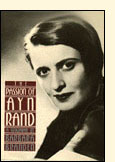
The Passion of Ayn Rand is a biography of Ayn Rand by writer and lecturer Barbara Branden, a former friend and business associate. Published by Doubleday in 1986, it was the first full-length biography of Rand and the basis for the 1999 film of the same name starring Helen Mirren as Rand.

Goddess of the Market: Ayn Rand and the American Right is a 2009 biography of Ayn Rand by historian Jennifer Burns. The author explores Rand's intellectual development and her relationship to the conservative and libertarian movements. The writing of Rand's books and the development of her philosophy of Objectivism are also covered.
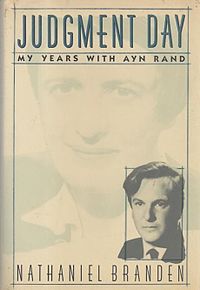
Judgment Day: My Years with Ayn Rand is a 1989 memoir by psychologist Nathaniel Branden that focuses on his relationship with his former mentor and lover, Ayn Rand. Branden released a revised version, retitled as My Years with Ayn Rand, in 1999.

Who Is Ayn Rand? is a 1962 book about the philosopher Ayn Rand by Nathaniel Branden and Barbara Branden. It comprises four essays addressing Rand's life and writings and her philosophy of Objectivism. The book's title essay is Barbara Branden's authorized biography of Rand. The Brandens subsequently repudiated the book, deeming its approach too uncritical toward Rand.
